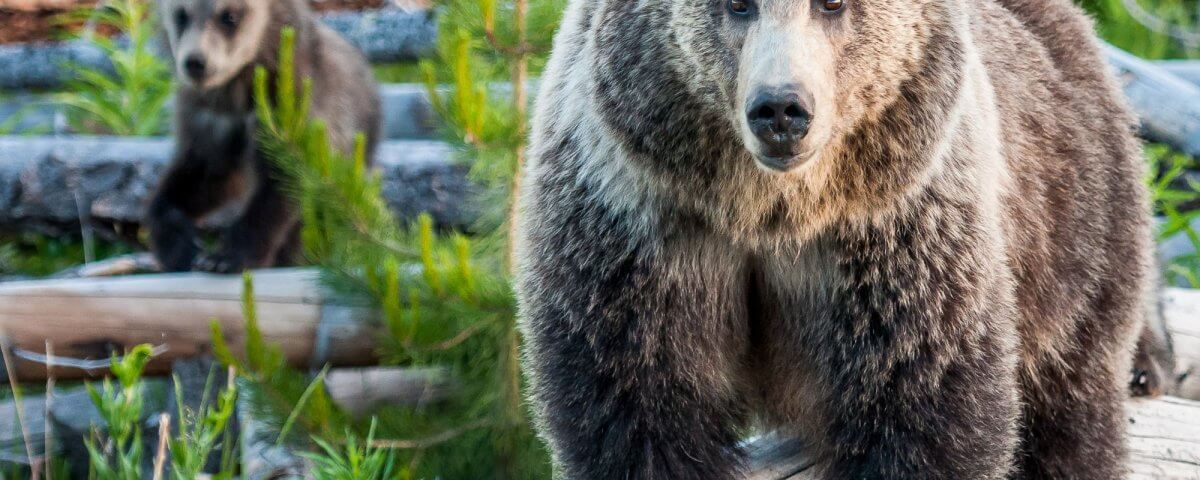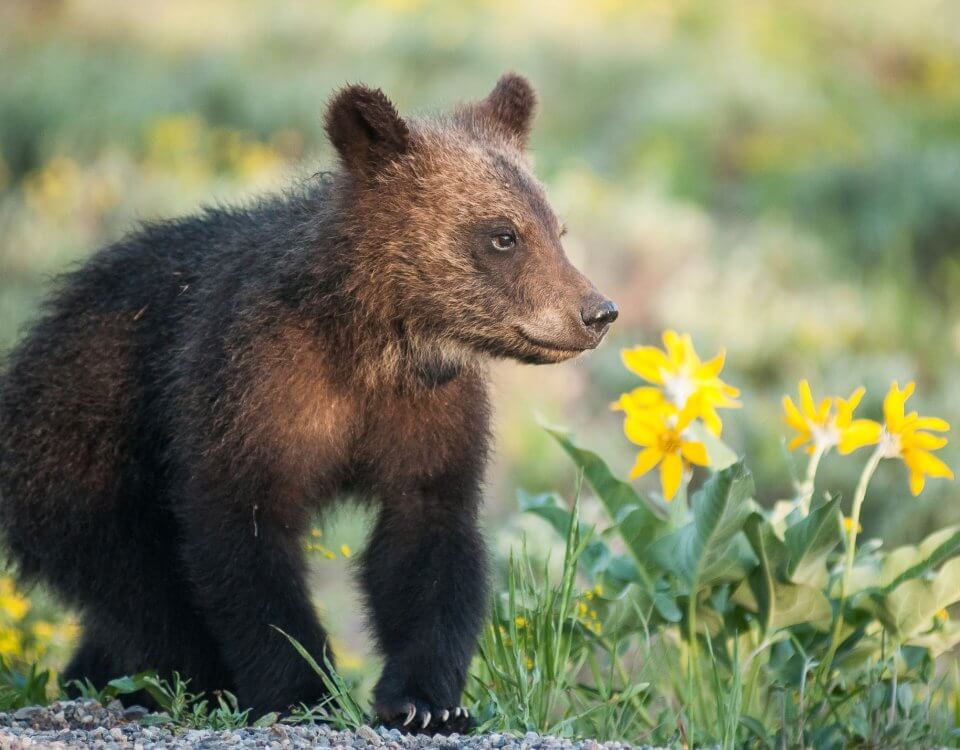Conservation Groups Welcome the Return of the Grizzly to the North Cascades

It’s Dark Sky Week! April 2-9
April 2, 2024
Living Alongside Bears
April 26, 2024April 25, 2024--The Friends of the North Cascades Grizzly Bear coalition welcomes the long-awaited framework for grizzly bear restoration in the North Cascade Ecosystem with the final record of decision released today. The plan is the culmination of decades-long efforts to return this iconic species to their historic homelands.
The decision follows the National Park Service (NPS) and U.S. Fish and Wildlife’s (USFWS) Grizzly Bear Restoration Plan and final environmental impact statement released last month.
“This is the start of another great comeback story. These alpine gardeners of the North Cascades, once on the brink of extinction, are now poised to reclaim their historic home range. The plants, animals, and people of this region will benefit from their return,” said Jasmine Minbashian, executive director of the Methow Valley Citizens Council.
Federal agencies completed a thorough, multi-year process to evaluate options for safely restoring and managing grizzlies in this region where they once thrived. NPS and USFWS are moving forward with a “nonessential experimental population” designation that would allow the agencies to flexibly manage the bears within a designated area per section 10(j) of the Endangered Species Act.
“The Upper Skagit celebrates this decision for the great bear, the environment, and everyone who desires a return to a healthy Indigenous ecosystem,” said Scott Schuyler, policy representative for the Upper Skagit Tribe. “We urge the agencies to move forward and put paws on the ground so the recovery may begin.”
Under this plan, a small number of bears will be translocated from a healthy source population into the North Cascades over several years until there is an established population of about 25 bears.
“The restoration plan is based on more than thirty years of research, learning, and hard work,” said Gordon Congdon, retired Wenatchee Orchardist. “The plan directly addresses the concerns of local people, private landowners, and local communities by providing flexible management tools that will reduce human-bear conflict and lead to the recovery of this magnificent species.”
Recognized as one of the most rugged mountain ranges in the country, the North Cascades spans over 9,500 square miles of mostly protected public lands in Washington State, standing as one of North America’s premier intact ecosystems with ideal habitat for grizzly bears.
Although grizzlies have been listed as “threatened” under the Endangered Species Act since 1975, and the North Cascades were identified in 1997 as having sufficient quality habitat to support a healthy grizzly population, grizzly restoration plans stalled for decades.
When a similar review process began in 2015, it received overwhelming public approval, followed by the most recent review process in 2023.
For more information on the plan for North Cascades grizzly bear recovery from the Friends of the North Cascades Grizzly Bear, visit https://www.northcascadesgrizzly.org/.
“We applaud the National Park Service and the U.S. Fish & Wildlife Service for deciding to actively restore grizzly bears to North Cascades,” said Susan Holmes, executive director of the Endangered Species Coalition. “As a keystone species, grizzly bears play an important role in the ecology of their habitat, and we are excited for their pending return to a place where they have too long been absent.”
“Today we celebrate our national parks as places where wildlife thrives and ecosystems are made whole,” said Theresa Pierno, president and CEO of the National Parks Conservation Association. “For years, NPCA has worked tirelessly to bring grizzlies back to their historic homeland. The return of the grizzly bear to North Cascades National Park is a symbol of the power of perseverance.”
“The grizzly bear is a critical part of the ecological and cultural fabric of the North Cascades. They belong here. Without them, our wild areas are diminished, less diverse, and sanitized. The narrative about Cascades grizzly bear recovery will take decades to unfold. But with science, education, and a little human tolerance, it can be one of the greatest conservation success stories of ours and future generations,” said Joe Scott, international program director for Conservation Northwest.
###
About Friends of the North Cascades Grizzly Bear: Friends of the North Cascades Grizzly Bear is an independent partnership supporting the restoration of a healthy and functioning grizzly bear population in the North Cascades Ecosystem. Supportive resolutions, testimonials, frequently asked questions, resources and helpful links, bear safety information, and more are available on our website. More than two dozen Supporting Organizations and Businesses and over 2,500 Supporting Individuals have signed on as Friends of the North Cascades Grizzly Bear. Steering Committee organizations for this collaborative effort include Conservation Northwest, the National Parks Conservation Association, Methow Valley Citizens Council, Woodland Park Zoo, Defenders of Wildlife, Northwest Trek Wildlife Park, and the National Wildlife Federation.


